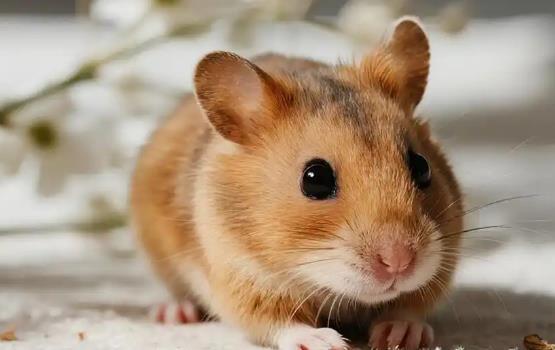The Black - Bellied Hamster (also known as the European Hamster or European Golden Hamster) is the largest existing hamster species. Its head - body length can reach 34 cm, its weight ranges from 400 to 900 grams, with the maximum weight being up to 1 kilogram, and its lifespan is approximately 8 years. The detailed analysis is as follows:

I. Physical Characteristics of the Black - Bellied Hamster
Head - Body Length: Exceeding 34 cm, which is much longer than that of other hamster species.
Weight: Ranging from 400 to 900 grams, with a maximum weight of up to 1 kilogram, which is several times that of ordinary hamsters.
Appearance: It has a yellowish - brown back and a black belly, resembling a "suit". It is equipped with cheek pouches for storing food.
II. Comparison with Other Large Hamster Species
Syrian Hamster (Golden Hamster)
Head - Body Length: 15 - 20 cm (females are slightly larger than males).
Weight: 100 - 200 grams.
Characteristics: It has a relatively large size and a variety of coat colors (such as golden, creamy white, tabby, etc.). It has a gentle temperament and is suitable as a pet.
Greater Long - Tailed Hamster (Chinese Hamster)
Head - Body Length: 14 - 20 cm.
Weight: No clear data available, but its size is smaller than that of the Black - Bellied Hamster.
Characteristics: It is an agricultural pest in northern China. It has a sturdy body and dark gray dorsal fur.
III. Habitat and Habits of the Black - Bellied Hamster
Distribution
It is distributed in forests, desert steppes, and agricultural areas in Europe and Xinjiang, China.
Habits
Nocturnal: It is active at night and feeds on plant seeds, rhizomes, and insects.
Solitary: It is a natural loner with a strong wild nature and may even bite people out of fear.
Declining Reproductive Rate: In recent years, its reproductive rate has decreased sharply, and it has been listed as a critically endangered species.
IV. Endangered Status of the Black - Bellied Hamster
Decreasing Population: Local extinctions have occurred in 13 European countries and some regions of Russia.
Declining Reproductive Rate: Female hamsters only give birth to 5 - 6 cubs per year (compared to more than 20 in the past).
Extinction Risk: Without changes, it is expected to become extinct between 2020 and 2050.
